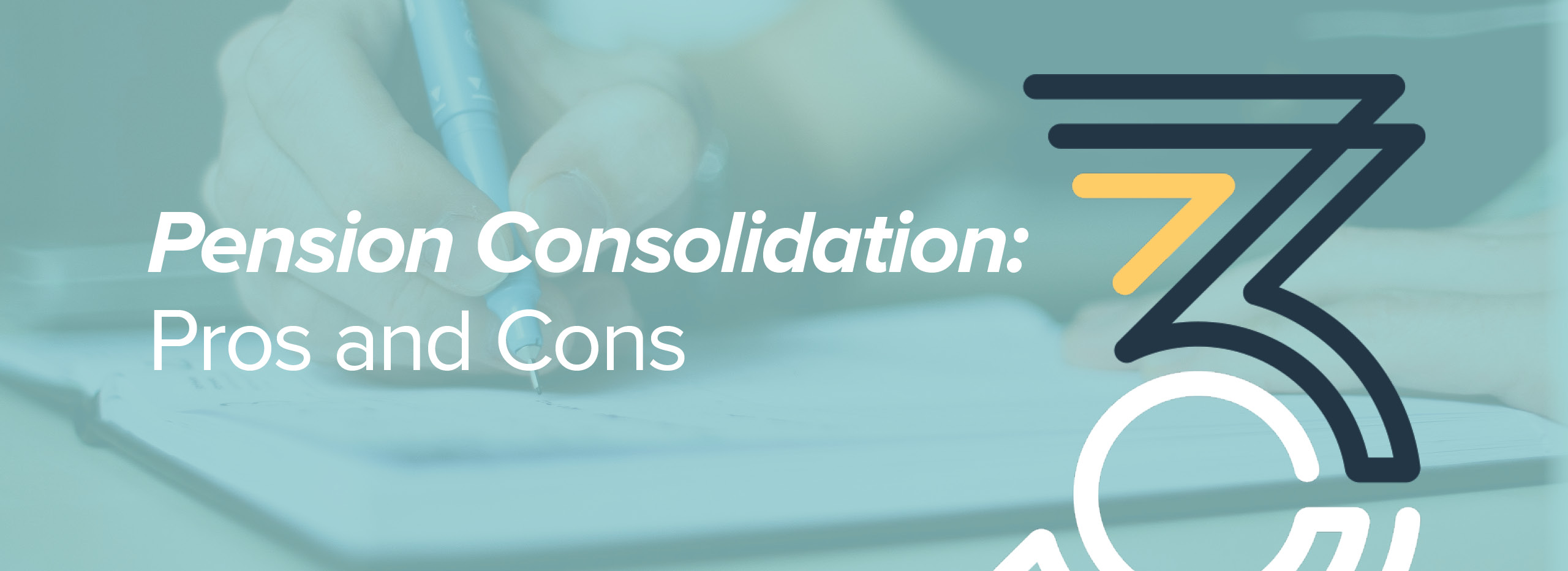Over recent weeks we have introduced you to the concept of pension consolidation and discussed some of the connected concepts.
Finally, for those who are still thinking about pension consolidation (get started here), we have for you a simple, straightforward summary of the main pros and cons.
This isn’t financial advice; everyone’s circumstances are different and you should always speak to a suitably qualified professional before taking action.
So, jumping into it, what are the pros of pension consolidation?
- Ease of administration. You get to reduce the amount of correspondence you receive, and providers to deal with when keeping tabs on your pensions.
- Control. If you are trying to take stock of your retirement planning, project forward benefits, or simply feel that you understand where you are right now, pension consolidation could help you to feel more in control.
- The chance to review what you have. When consolidating your pensions, you will probably become more familiar with each plan in turn. This may include understanding any guarantees on the plans, your options for income at retirement, or whether you are benefitting from any discounts on charges. It should be noted that any of the above examples could well be reasons to retain pensions if the terms are favourable.
- The opportunity to transfer into the ‘best’ pension. Imagine you have 3 pensions which are all equal in terms of features and fund choice. But one is half the price of the others. It could be that transferring into the lower-cost plan will put you in a better financial position.
Ready to move on? Cons:
- Cost. There is likely to be a charge for consolidating your plans. This could be a fee to a financial adviser, or perhaps to a pension consolidation firm. You should always be better off, AFTER all, costs, if you are consolidating pensions.
- Unadvised pension consolidation. Not a ‘con’ as such, but more of a warning. If your pension plans have guaranteed benefits worth less than £30,000, you don’t need to seek financial advice before consolidating them. This is how pension consolidation firms, who are not able to give financial advice, are able to provide their services. It should be carefully considered that, although £30,000 may not be enough money to pay for your entire retirement, it’s an awful lot of money not to take advice on.
- Loss of benefits. This ties in with the above point. If you have any features within your pension that may be of value to you, it’s important not to let go of these simply for the sake of tidying up your plans. An example of this could be a guaranteed annuity rate (where your plan can benefit from a rate of income in retirement which is better than those available in the marketplace) or perhaps a discount on charges because your pension was formerly part of a group scheme with favourable terms. Some pension consolidation firms will simply disclose these features without advising you to retain them. This is where the benefit of advice creeps back in again.
- Loss of the ‘small pots’ rules. These rules are applicable to many smaller value pensions, where you may actually benefit from retaining them as individual plans. To understand why smaller pensions can be beneficial in retirement, read on here.
In summary, there is no way to definitively say whether pension consolidation is the right avenue for you without understanding your circumstances. Don’t underestimate the value of financial advice.
If you wish to discuss the contents of this blog post please contact corryn.wild@three-counties.co.uk or telephone the office on 0191 230 3034.
Disclaimer: The above content does not constitute financial advice. Your circumstances may differ from those outlined and you should seek advice which is relevant to your own situation.


